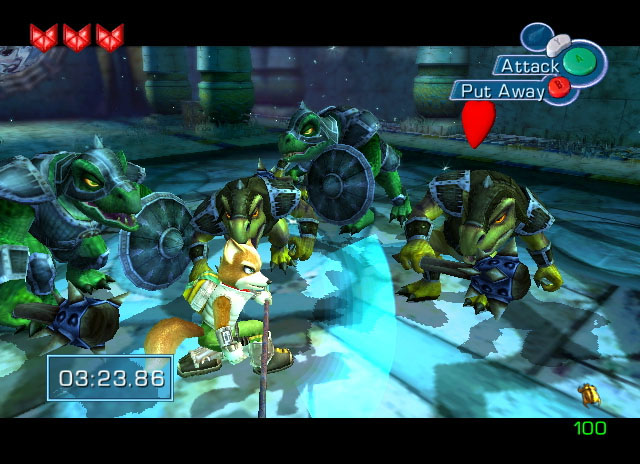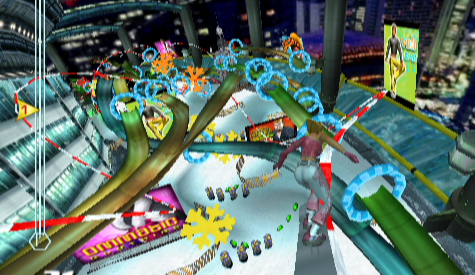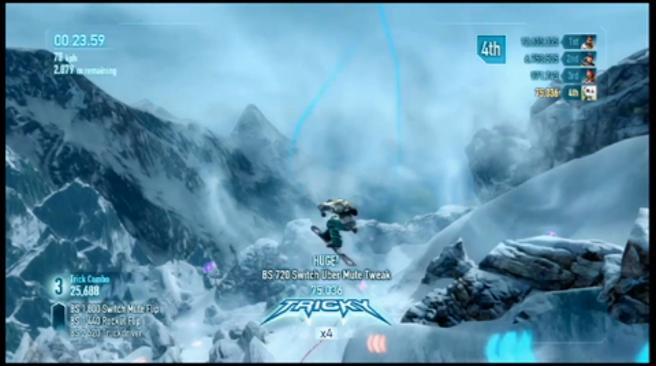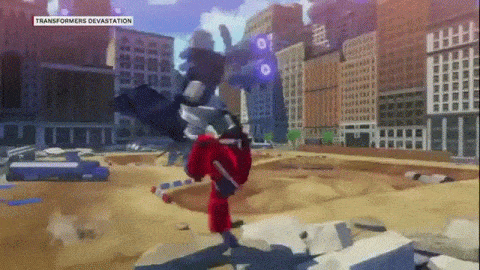Today’s world of gaming is a different landscape than its early days. Most of the biggest games coming in are form renowned, established franchises. Doing something completely different with a different name (or as the industry likes to call it ” new IPs” (intellectual properties) is a risky endeavor.
One example close to heart is the upcoming release of the self-titled Need For Speed (NFS 2015), I’ve seen many mixed reactions about one common ground: Is it Need For Speed? Does it deserve the name? It’s a question I ask myself too.
Need For Speed is not the only franchise in question. Tons of long-running franchise have seem to appear lately, some returning with a totally, radical change, while some stick close to what is supposed to be. This leaves fans of franchises being fans for different reasons, with different expectations. Thus, a predicament appears when a new game comes up as not all fans are happy about it.
This year we will see a new Rainbow Six, and a Star Wars Battlefront, franchises we have lately seen. There’s also the Need For Speed reboot, an annual racing franchise which made an absence last year. But for these particular games, they are taking a different approach. Rainbow Six remains having the counter terrorists versus terrorist vibe, but now focuses on small skirmishes in intimate, destructible buildings, with a multiplayer focus. Star Wars Battlefront is a reboot, with new modes that don’t exactly follow the molds of past series in design. Need For Speed is a full reboot of the franchise itself (there were two previous reboots already, believe it or not).
Making another game in a franchise is tricky. On one side, the franchise have to appeal to more players- but would introducing changes upset the core fanbase? Then there’s the idea of an entirely new game to attract more players- but there won’t be enough interest if there’s no familiar name attached.
Slapping A Name
Publishers would prefer slapping a familiar name than a new one so that they can attract audience that have grown to know it, making it an easier sell. It’s easier to talk about something familiar. Plus, the only two noticeable unique IPs that have reach commercial success on its first go for the past few years are Destiny and Assassin’s Creed, which is supporting enough for publishers to not take a gamble in unique IPs.
(Or MAYBE it’s because there’s not many unique IPs being pushed that causes this?)
Yet, just adding a familiar name won’t guarantee it to become a great game. One of Rare’s last game with Nintendo, Starfox Adventures, was supposedly a unique IP before Nintendo figured it would work well if they shoehorned in Starfox, a game about fighter ships, into a platformer.
Results? It received mixed reviews, and not much love from the fans.
Oh, Nintendo did it again recently too. A Metroid Prime game that’s actually a multiplayer-focused shooter instead of a full-fledged adventure-shooter. Fans rallied to make it not be released. I personally believed the backlash could have been prevented by not using the Metroid Prime name- a series fans have been clamouring for a new installment. Offering something that does not fit in the name felt like an insult to the core fans.
So, slapping a familiar name may not be the way to go for franchises with hardcore fans, or fans expecting a new game from it.
Returning to Its Roots, Staying True
Another instance of slapping a name is when the biggest announcement of 2K in E3 2010 was a new XCOM game. XCOM: UFO Defense (Or UFO: Enemy Unknown in the UK) is an old tactical strategy/base management game by MicroProse from the 90s, loved for its difficulty. When it was announced as just XCOM and it’s now an FPS set in the 50’s fighting some glob monster, fans outraged. Another studio was creating their very own version of the classic XCOM strategy in the form of Xenonauts. This backlash proved to be on their side, as their project got more attention and support afterwards.

Xenonauts follows faithfully to the original XCOM. If the rights owners won’t do it, then may as well let the fans do it.
But somehow, secretly another team was in the works of a true XCOM successor. Firaxis, the studio founded by former MicroProse employees, was behind this. It was released in 2012 as XCOM Enemy Unknown, using all the systems that made the original XCOM a classic, while adapting it to fit expectations of a modern game. The game is a success critically and commercially, and even impressed original creator Julian Gollop (watch the first 5 minutes of this video below).
Xenonauts, which is more faithful to the original title was released with fanfare too. The first announced XCOM game? Sadly it turned to be just a generic third person shooter. Let it be forgotten it ever happen.
And XCOM isn’t the only success case of bringing back a franchise. Deus Ex Human Revolution did well too, and again, by bringing as much element of what made the older titles great.
But again, there’s also bad eggs on this. Tony Hawk Pro Skater 5 attempted to recapture the old magic of the first 4 skaters but failed miserably to even copy the basic gameplay correctly. Thief was handled by the same studio that did Deus Ex Human Revolution (but a different team), and that fall flat too, despite trying its best to stay true to its roots gameplay-wise
Retreading in old grounds looks like the best way to go, but it must be done perfectly.
Changing Too Much Can Be A Hit Or Miss
Then there’s the reboot- a change in direction of a franchise. It can be either to capitalise on a current trend, or whoever in charges making the decision isn’t confident in retreading the old systems and mechanics established by the franchise.
Remember there was an SSX reboot? The original was one of the better launch titles of the PS2. Its charming, cartoony, over-the top designs- the track designs and crazy tricks in particular- made it memorable. The reboot made most of the elements more realistic, more gritty.
It was never heard of ever since release.
And then there’s Simcity. Simcity poised to be a return-to-form for the father of city-builders. It tried to add meaningful changes like having user-created towns co-operate and a much more advanced simulation engine. Sadly all everyone remembers about it is the terrible launch that made everyone facing server issues (which means it is unplayable), small city sizes, no official mod support, and the insistence that the online component is integral to the game, only for them to announce much later there were releasing an online mode.
Thank God we have Cities: Skylines.
But a game doesn’t necessarily need to be called a reboot to justify some changes.
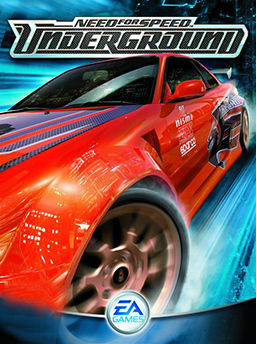
To majority of fans, NFS Underground is what defines what NFS is, tuner cars with loads of customization options.
NFS Underground was a story of success by a change in theme. It capitalised on the rising trend of tuner car culture in mainstream media. The fact that several NFS titles on, it still served as the best title that nailed tuner culture, much to the chagrin of old-school fans who wanted exotic racers of the old.
Changing themes are OK, but what about changing genre?
Transformers Devastation proves a point. It played nothing like any Transformers game before this. It looked the part though. Plus, the game is being praised by both fans and critics. This is due to the change of gameplay- from a shooter to a melee-focused character action game, is made by the current masters of character-action games, PlatinumGames. The gameplay, although familiar to older games made by the studio, it plays well, rewarding and most importantly, fun.
Just look at this.
Also, there are already plenty of shooters out there that are more competent than any Transformers game, so a change in genre doesn’t hurt much to its appeal.
But usually, changes of genre, especially niche genres from games like XCOM and Syndicate, are not well-received.
Conclusion
The dilemma here is how should a big-name franchise move forward? A change could upset to current fanbase, but churning out the game with slight changes and you have critics slamming them for being rip-offs. There’s no definite answer.
With Rainbow Six, Battlefront, and Need For Speed, I am worried with the direction of these games are going. There will always be a part of the fanbase that yearns for these franchises to go back like what they used to play as. It could be just for nostalgic reasons, or it could be valid criticism that the franchise just doesn’t fit the mold it tries to change itself to. And I am not alone on the camp of skeptics here. Surely, these titles will all be well made and celebrated by the new generation of gamers, gamers who missed out on the franchises in its heydays.
The core fans however, have to just admit that some franchises have to change so they could be relevant. So stop being a fanboy by forcing game X is the definite game of the series and everyone will be fine.
Yet, there’s no problem giving constructive criticism. It’s good to discuss on what made certain games in a franchise great. I would gladly support anyone who argues the first two Battlefronts are the better games than what we see from DICE’s attempt from its beta test impressions, with solid reasons and points!


